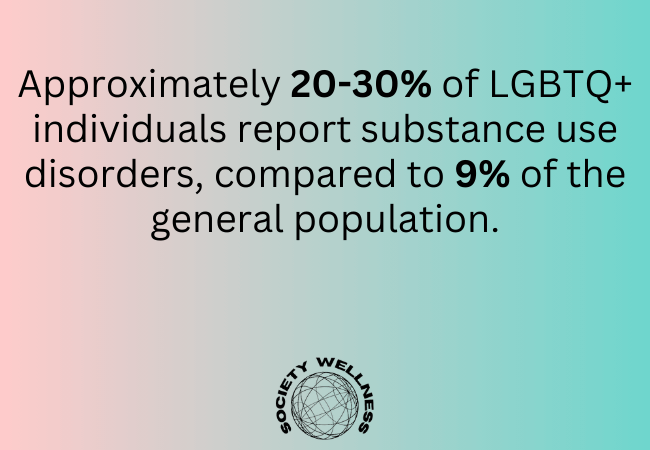In addiction recovery, the journey to healing can be complex, especially when cultural, gender, and sexual identities intersect with the challenges of substance use. Recognizing the unique needs of individuals from diverse backgrounds is essential to providing effective and compassionate care. Cultural competence in addiction therapy goes beyond awareness; it involves adapting treatment approaches to honor each individual’s experiences, values, and identities.
LGBTQ+ individuals, for instance, face distinct challenges, including discrimination, stigmatization, and identity-related stress, all of which can contribute to higher rates of substance use. Cultural competence in LGBTQ Addiction Treatment Programs ensures that these unique factors are addressed, creating a more supportive and inclusive environment for recovery.
What Is Cultural Competence in Addiction Therapy?
Cultural competence refers to a therapist’s ability to understand, respect, and effectively respond to the cultural backgrounds and unique experiences of their clients. In addiction therapy, cultural competence requires an understanding of how factors like race, ethnicity, gender identity, sexual orientation, and socioeconomic status can influence a person’s substance use patterns, treatment needs, and recovery journey. It’s about meeting individuals where they are and offering tailored support that considers their specific life experiences.
In LGBTQ Addiction Centers, culturally competent care is especially important because LGBTQ+ individuals often experience unique pressures and challenges. This approach helps reduce feelings of alienation and ensures clients feel understood and supported in their journey toward recovery.
The Importance of Cultural Competence
Cultural competence in addiction therapy is more than a consideration—it’s a necessity. It ensures that treatment programs acknowledge and respect the diverse identities, experiences, and values that each person brings to recovery. For LGBTQ+ individuals, cultural competence bridges the gap between effective treatment and barriers that can hinder healing. LGBTQ+ individuals often face unique stressors such as discrimination, stigma, or rejection based on their sexual orientation or gender identity, all of which can contribute to substance use and relapse.
When addiction treatment programs prioritize cultural competence, they create an environment where clients feel seen, respected, and understood. This approach fosters open communication, allowing individuals to openly discuss challenges and access support in a way that feels safe and affirming. LGBTQ+ Addiction Treatment Programs that integrate cultural competence address these nuances head-on, increasing the likelihood of positive outcomes and reducing the risk of relapse by empowering clients with coping strategies tailored to their unique experiences. By creating a space where all individuals feel respected and included, cultural competence becomes a foundation for effective, compassionate care that supports long-term recovery.
Why Cultural Competence Matters in LGBTQ+ Addiction Recovery
For LGBTQ+ individuals, cultural competence in addiction therapy can be the difference between a supportive treatment experience and one that feels isolating. Here’s why it’s crucial:
- Higher Rates of Substance Use: Studies indicate that LGBTQ+ individuals are more likely to experience substance use disorders than the general population. LGBTQ+ Substance Abuse Treatment programs need to recognize and address the factors that contribute to these higher rates, such as minority stress and discrimination.
- Unique Mental Health Challenges: LGBTQ+ individuals face unique mental health stressors, including anxiety, depression, and trauma related to discrimination or rejection. LGBTQ+ Mental Health Programs that incorporate cultural competence can more effectively address these co-occurring mental health challenges in treatment.
- Identity-Sensitive Approaches: LGBTQ+ individuals benefit from therapists who understand and respect their identities. In LGBTQ+ Alcohol Addiction Treatment, cultural competence involves using inclusive language, acknowledging clients’ identities, and offering affirming care that respects their unique perspectives and experiences.
Culturally Competent Strategies in Addiction Therapy
Creating culturally competent addiction therapy requires specific strategies that acknowledge and support diverse client needs:
Affirmative Therapy
Affirmative therapy is designed specifically to support LGBTQ+ individuals by validating their identities and experiences. This approach helps clients feel seen and respected, creating a safe space for open communication in LGBTQ+ Day Treatment, LGBTQ Night Treatment, and Evening Outpatient programs.
Trauma-Informed Care
Many LGBTQ+ individuals experience trauma related to discrimination, bullying, or even rejection from family or community. Trauma-informed care is sensitive to these experiences, focusing on creating a safe environment where clients feel secure. Recognizing the links between trauma and substance use is essential for effective LGBTQ+ Substance Abuse Treatment.
Inclusive Language and Practices
Therapists who use inclusive language and acknowledge clients’ chosen pronouns and gender identities foster a supportive and respectful therapeutic environment. LGBTQ Addiction Treatment Programs that prioritize inclusive practices can help clients feel accepted and understood, reducing stigma and improving outcomes.
Culturally Relevant Peer Support
Peer support groups tailored for LGBTQ+ individuals allow clients to connect with others who share similar experiences and challenges. These groups provide emotional support, reduce feelings of isolation, and promote resilience. Many LGBTQ Addiction Centers integrate peer support as part of their treatment approach.
Community Resources and Support Networks
Partnering with LGBTQ+ organizations and resources can enhance the recovery process by connecting clients with supportive networks outside of treatment. This holistic approach acknowledges the value of community and belonging in the recovery journey.
The Role of Cultural Competence in Reducing Relapse and Enhancing Recovery
Cultural competence plays a critical role in not only supporting clients during treatment but also in equipping them to maintain recovery over the long term. When LGBTQ+ individuals receive care that resonates with their unique cultural, social, and personal experiences, they are more likely to stay engaged in their recovery journey. Addressing issues like minority stress, discrimination, and internalized stigma helps therapists and counselors work alongside clients to build coping skills specific to the challenges they may face.
According to the National Institute on Drug Abuse (NIDA), LGBTQ+ individuals are more likely to experience substance use disorders than their heterosexual counterparts. Approximately 20-30% of LGBTQ+ individuals report substance use disorders, compared to 9% of the general population.
Relapse often occurs when stressors go unaddressed, making it essential that LGBTQ Addiction Treatment Programs integrate culturally competent coping strategies. Techniques like mindfulness, grounding exercises, and identity-affirming support groups are tailored to help clients process identity-related stress, reducing the chances of turning to substances as a coping mechanism. This approach not only strengthens resilience but also fosters a supportive environment where clients feel valued and understood, making recovery feel attainable and sustainable.
The Future of Cultural Competence in LGBTQ+ Addiction Recovery
The future of addiction treatment is increasingly embracing diversity and inclusivity, with cultural competence at the forefront. As more LGBTQ+ individuals seek support that honors their unique identities, addiction centers are recognizing the need to adapt and improve their programs. Training staff in cultural competence, expanding resources for LGBTQ+ mental health, and offering specialized LGBTQ+ Day Treatment, Night Treatment, and Evening Outpatient programs are just some of the steps toward a more inclusive recovery landscape.
In the coming years, advancements in culturally competent care will continue to shape addiction treatment. By establishing partnerships with LGBTQ+ organizations, conducting research on LGBTQ-specific recovery challenges, and continuously adapting to the evolving needs of clients, treatment centers will be better equipped to offer truly supportive care. As cultural competence becomes an integrated part of addiction therapy, LGBTQ+ individuals can look forward to a more accepting and empowering recovery environment—one that helps them build a strong foundation for lifelong wellness.
Final Thoughts
Incorporating cultural competence in addiction therapy isn’t just a trend; it’s an essential part of building a supportive and effective recovery environment. For LGBTQ+ individuals, the commitment to understanding, respect, and inclusivity within treatment programs can make a world of difference. When therapists and addiction centers take the time to understand each client’s unique background, they foster trust and create a pathway to healing that resonates on a deeper level. Reach out to us at (888) 598-9510 to learn more about our specialized programs and how we can support your journey to recovery.
FAQs on Cultural Competence in Addiction Therapy
What is cultural competence in addiction therapy?
Cultural competence in addiction therapy refers to a therapist’s ability to understand, respect, and effectively respond to the cultural, social, and personal backgrounds of clients. This is particularly important for LGBTQ+ individuals, as it helps ensure that treatment is tailored to their unique experiences, identities, and challenges.
Why is cultural competence important for LGBTQ+ individuals in addiction recovery?
LGBTQ+ individuals often face unique stressors such as discrimination and minority stress, which can contribute to substance use disorders. Cultural competence helps create a safe and supportive environment that validates their identities and experiences, which is essential for effective recovery and reducing relapse rates.
How does cultural competence help reduce relapse in addiction recovery?
Cultural competence helps individuals feel understood and respected, which builds trust in the therapeutic relationship. This sense of support makes clients more likely to engage with treatment, develop better coping mechanisms, and sustain recovery long-term, reducing the likelihood of relapse.
What are the benefits of cultural competence in LGBTQ+ addiction treatment?
Culturally competent treatment helps LGBTQ+ individuals feel seen and heard, addressing the specific challenges they face, such as discrimination and identity-related stress. It provides a more personalized recovery experience, improving engagement in treatment, building resilience, and enhancing long-term recovery outcomes.
How can LGBTQ+ addiction centers improve cultural competence in their treatment programs?
LGBTQ addiction centers can improve cultural competence by offering training for therapists on LGBTQ+ issues, integrating identity-affirming practices, creating inclusive treatment environments, and providing LGBTQ-specific recovery resources, such as peer support groups and specialized counseling.

